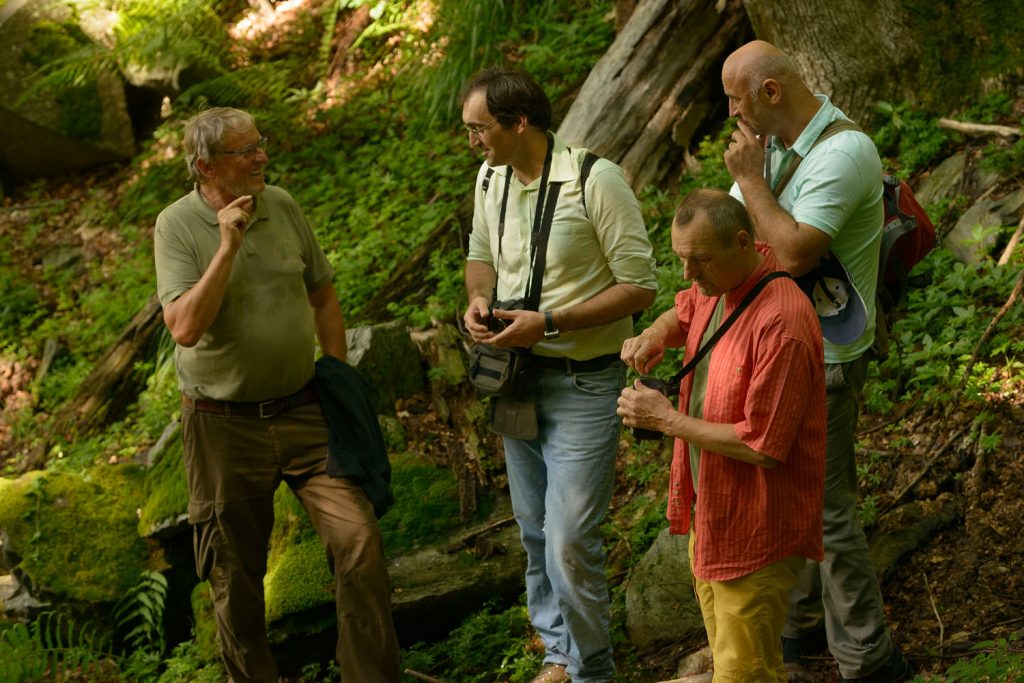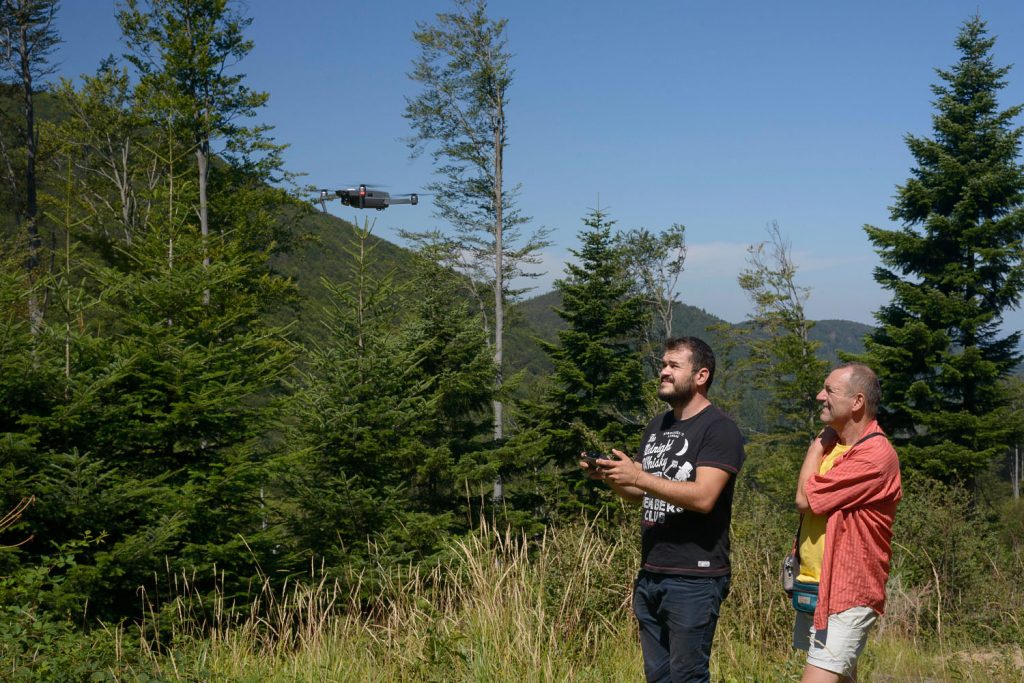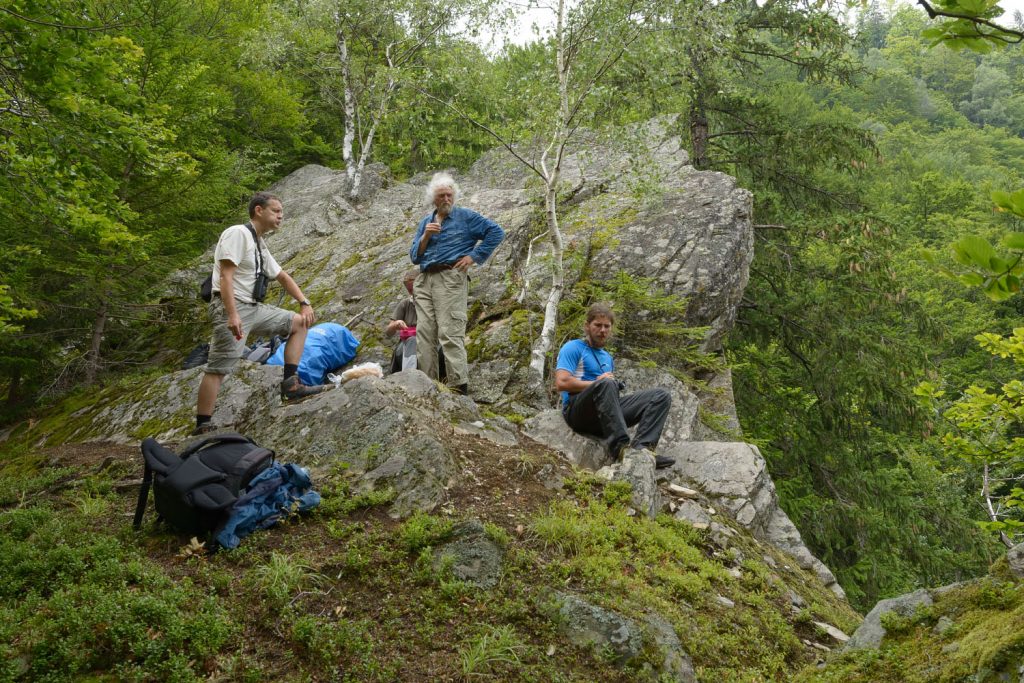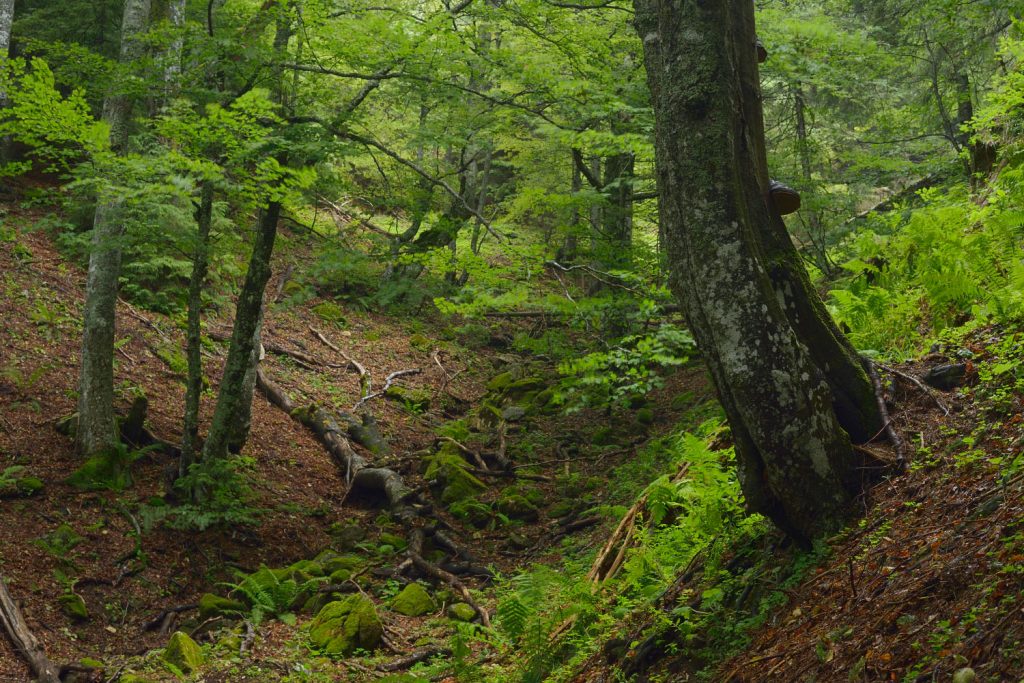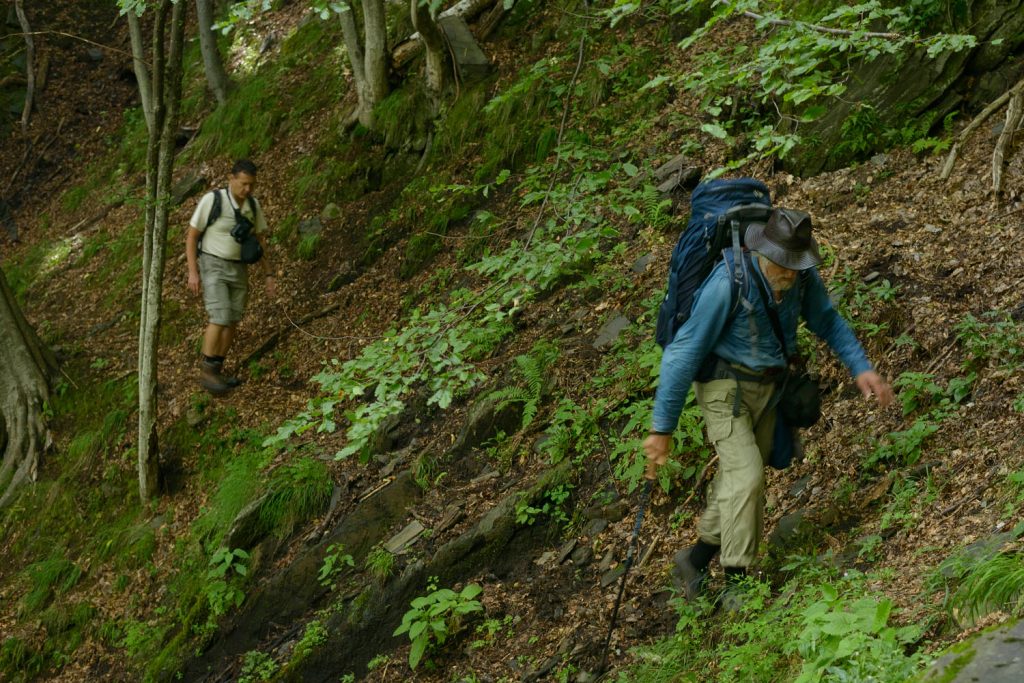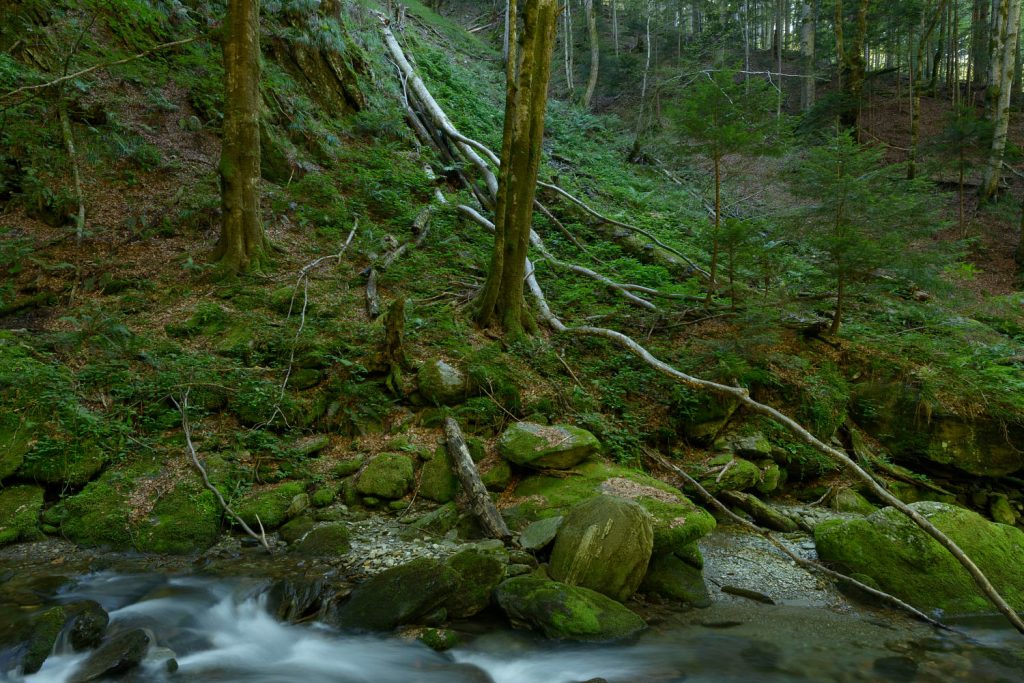Romanian expert project partners explore potential primeval forests in Romania and prepare studies for protection
At the end of July 2017, forest ecology scientists and experts from Germany and Romania trekked to several potential primary forest sites to confirm their status of naturalness and to prepare grounds for expert studies to include these forests into Romania’s “National Catalogue of Virgin Forests”. The expert team included international scientists Professor Rainer Luick (Professor for Nature Conservation and Environmental Protection) from Hochschule für Forstwirtschaft in Rottenburg (Germany) and Professor Hans D. Knapp, one of the “fathers” of the UNESCO World Heritage programme to preserve Europe’s primeval and old growth beech forests.
Accompanying the professors were Gabriel Schwaderer, executive director of EuroNatur Foundation (Germany) and Romanian forest experts Dietmar Gross, Mihail Hanzu and Ion Holban. The experts visited the pristine forests in wild Boia Mica and Curpanului valleys in the southern Fagaras Mountains, a beautiful but vanishing mixed beech-fir forest near Malaia and the untouched forest in Laitei valley in northern Fagaras.
The research trip was part of the project “Old growth Forests in Romania. Safeguarding European Biodiversity Heritage” which is funded by the Deutsche Bundesstiftung Umwelt and directed by Professor Rainer Luick (University Rottenburg) in partnership with Matthias Schickhofer (consultant, author and photographer; Austria) and Professor Iovu Biris (Romania). DBU foundation was launched by the German Government in 1990 and is one of the largest foundations of this kind in Europe today.
The aim of the project is to assist and support Romanian efforts for the conservation of primeval and old growth forests. In particular Romanian DBU-project partners will visit potential primary forest areas, liaise with owner and forest managers, conduct scientific site checks regarding naturalness and compliance with criteria as set by the Ministerial order, compile their findings in studies, following the legal requirements, and submit to local Romanian forest authorities and the Ministry for Water and Forests. All studies will be written by Romanian ecology and forest experts. As soon as they are submitted they will be published on this website.
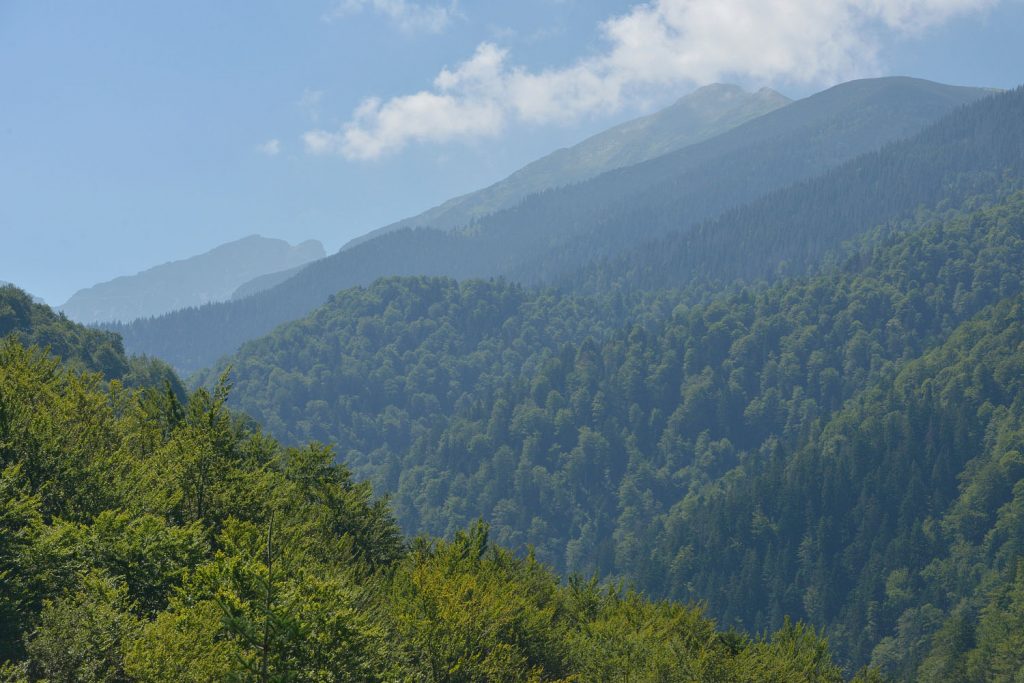
“Virgin forests” in Romania have theoretically been protected by law since 2008. In 2012, a government decision defined that all primeval forests, which had been registered by the Dutch-Romanian “Pin Matra” forest inventory in 2005 should be protected. However, in the last 10-15 years large areas of old growth and primeval forests have been logged, also in so called “Pin Matra” areas. The legal settings for forest protection have been, and still are, widely ignored. In 2016, the former Romanian government issued another Ministerial Orders (Nr. 1417/2016 and Nr. 2525/2016) which defined criteria for virgin forest identification and procedural settings for the development and submission of expert studies about “virgin and quasi-virgin forests” for the “National Catalogue of Virgin Forests”.
Several experts and organisations including WWF, Greenpeace, Agent Green submitted studies about virgin forests for the National Catalogue at end of September 2016, but only a few of these expert papers have been accepted by authorities and a Ministerial commission so far.
In order to provide information about the DBU-funded project and to make clear that the project aims to help with implementation of Romanian forest protection programs, Professor Rainer Luick sent a letter to the Minister for Water and Forests, Doina Pana on July 17th 2017, explaining the objectives of the project and asking for formal “acknowledgement and endorsement of the project by the Ministry”. A formal letter from the Ministry confirming their support for the DBU / German Government funded project would significantly help the expert project-partners – to identify themselves when getting in touch with forest authorities and owners and to build trust amongst stakeholders. Unfortunately the Ministry for Water and Forests is not willing to give that kind of support for the (Romanian) expert partners who are actually helping with the population of the Romanian “National Catalogue of Virgin Forests”…
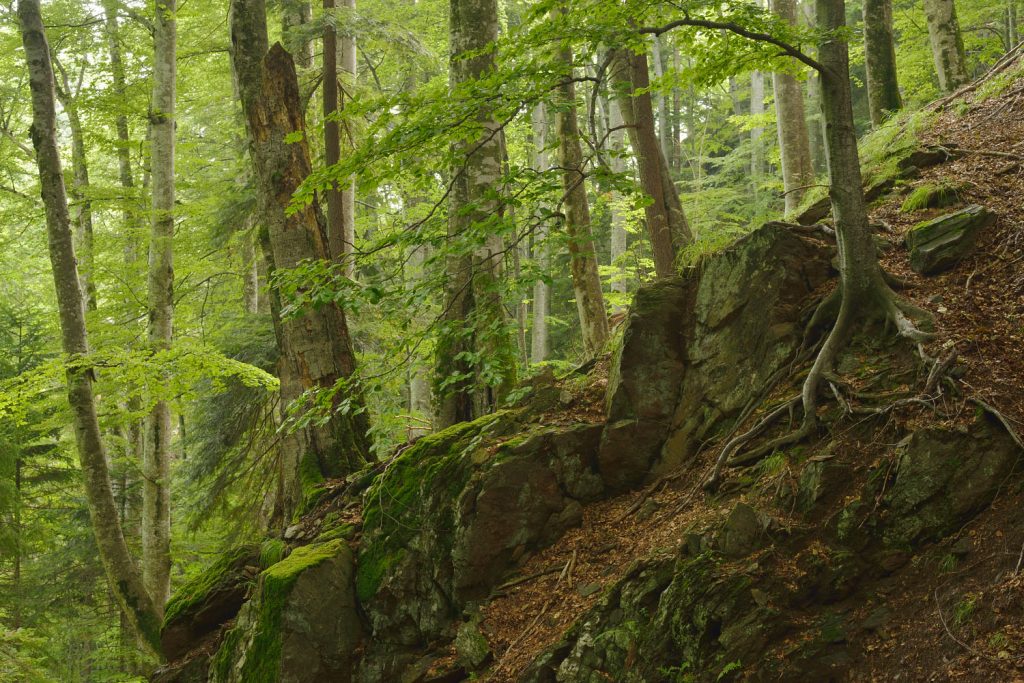
Despite statements from Romanian government representatives in July 2017, that logging of primeval forests in Romania has been stopped and “virgin forests” are protected, rampant destruction continues. The experts found fresh logging in primeval, high ecological value forests during the trip. Those forests are theoretically under protection by Romanian law, but logging proceeds.
The situation has gotten worse since the new government was set up in 2017. No studies for the protection of “virgin forests” have been accepted by the Ministry this year. NGOs are alarmed by the latest government actions which could lead to an erosion of forest protection laws in Romania.
In June 2017, an irritating press release from the Ministry of Water and Forests stated that the ‘Pin Matra’ inventory study from 2005 does not exist, and neither the Ministry nor authorities have it. However, the study was published in 2005, the project was executed by the Royal Dutch Society for Nature Conservation (KNNV) in co-operation with Romanian Forest Research and Management Institute (ICAS). Other project partners were the IUCN-European Office and independent European forestry experts. Data from the study is used on the website www.inspectorulpadurii.ro which is run by the Romanian Government. NGOs reacted with great alarm at the time to the bizarre ministerial announcement and called it an attempt to derail forest protection in Romania.
Despite these ridiculous setbacks, the DBU-Rottenburg project will do its utmost to help save some of Europe’s last large remnants of primeval forests. The expert teams started with field studies in June and July 2017. The project is funded for a period of two years.
Report by Prof. Rainer Luick about the DBU-mapping project.
